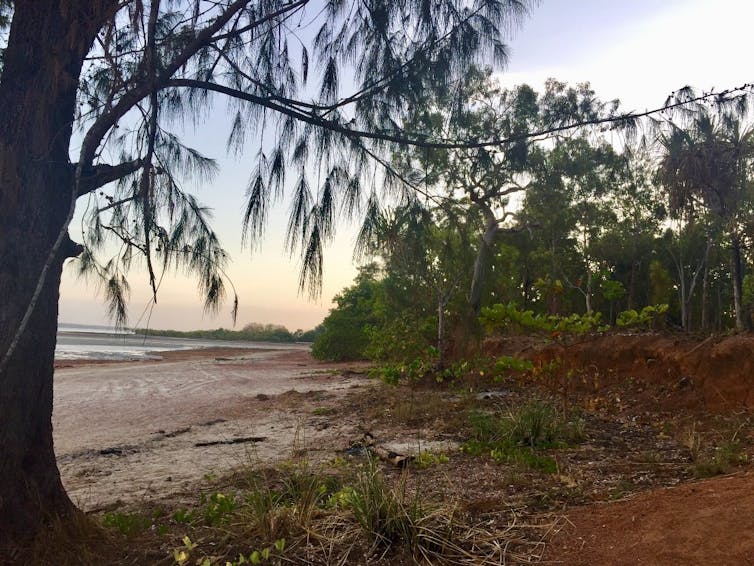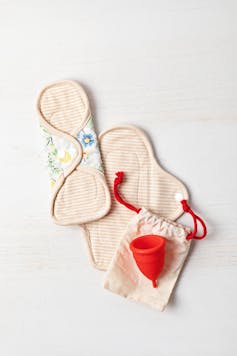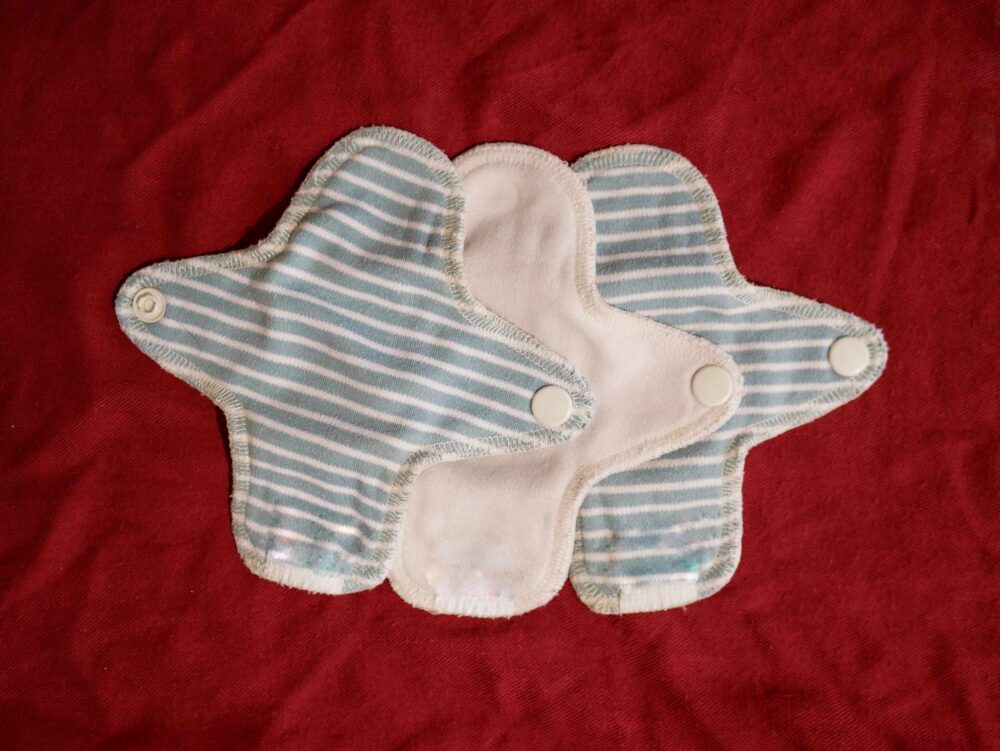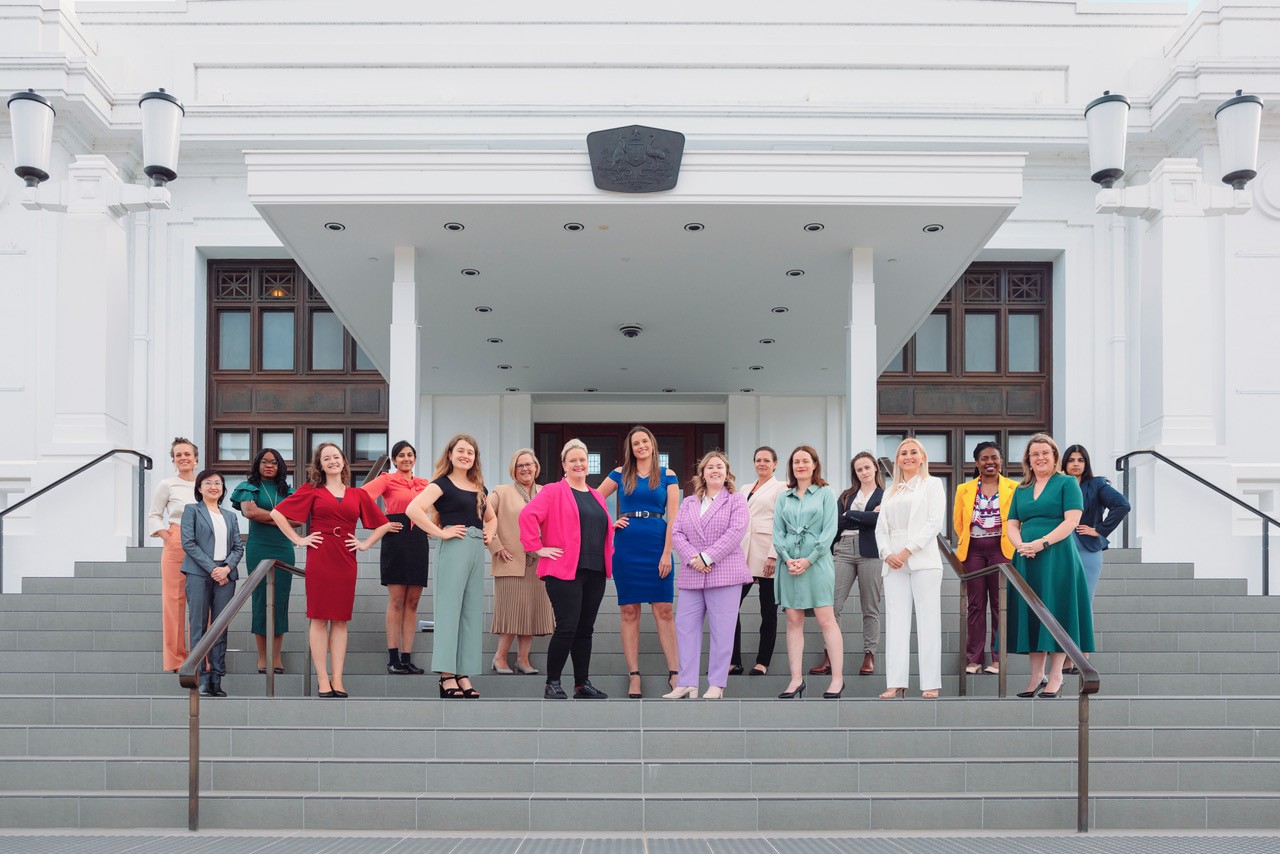In Australia, most states have introduced initiatives to provide people who menstruate with free period care products in public schools.
The Queensland government’s recent announcement of free period care products for state schools is excellent progress.
However, there is value in enhancing the program by providing reusable products to reduce waste to landfill, by educating boys and other students who don’t menstruate, and tailoring this initiative appropriately for remote and Indigenous People who menstruate.
Australia’s period care has come a long way
Australia has come a long way since our 2017 article about Indigenous girls potentially missing school in remote communities each month due to a range of period care challenges. The article was read by 25,000 people. It attracted a strong and positive response from Indigenous readers as well as politicians, policy makers and community groups all seeking to change the situation.
Our article began an important and ongoing Indigenous health collaboration towards ensuring all Indigenous and remote people who menstruate have access to information and products every month.
Proud Aboriginal and Torres Strait Islander woman, businesswoman and public health researcher, Minnie King, from remote Western Cape York Peninsula in Queensland invited non-indigenous public health researcher, Nina Lansbury, to collaborate on a locally-led, Traditional Owner-guided period care project in the region, called Dignity Everyday.

Challenges with period care in remote Australia
Our “Dignity Everyday” community research project identified a strong need for the provision of period care products and for delivery of appropriate personal development information to young people who will or do menstruate. In our project, female students described 16 barriers for managing periods. We divided these into four main areas: their living situation; knowledge, culture and behaviour; discomfort and public life; and finances.
The results from this study highlighted three missing parts from the Queensland government’s new announcement that could address many of these barriers.
#1 Environmentally-friendly reusable period care products have arrived… but not everywhere
Firstly, distributing reusable period care products needs to be considered. In recent years, reusable period care products such as menstrual cups, reusable sanitary pads, and period pants have become more available for urban and online purchase. However, they are difficult to obtain in remote areas.

Reusable pads and menstrual cups are options that create less landfill waste and save money on disposable products.
shutterstock
We recently distributed donations of 1,000 new pairs of reusable period pants and 250 reusable menstrual pads to girls and women during women-only yarning circles in Queensland’s Mapoon, Napranum and Weipa. Initial feedback has been strong in terms of being more discreet (the pants look like normal undies and the pads look like handkerchiefs), having low waste (there is no need for a bin or landfill), and removing cost (they can be used for around five years).
#2 Supporting boys to build their knowledge and awareness of menstruation
Secondly, the government needs to ensure the involvement of boys in period care education. Female students in our yarning circles in Western Cape recommended this as a way for boys to build their awareness and therefore reduce teasing and stigma. In response to this, and in the company of a male local Indigenous educator and four other male teachers, we held discussion sessions with middle and senior high school boys. These information sessions were well received by the boys. When we described the girls’ challenges, the boys provided a range of supportive suggestions on how they could support their mothers, sisters, and girlfriends.
#3 Community engagement by invitation only
Finally, community-led programs work best for Indigenous and remotely-located students as they are locally and culturally appropriate. Rather than adapting an urban school program for rural and remote students, our “Dignity Everyday” collaboration in Western Cape sought a best practice approach to community engagement.
We engaged firstly with senior Indigenous women on the issue and Traditional Owners provided advice for project design and implementation. Permission to engage in the local school was secured through the Department of Education. Products were donated by period care charities and companies. The communication always focuses on strengths – not deficits. The research team returns to community at their invitation.
The outcome is a culturally-sensitive, location-focused and ongoing collaboration that was described by the supportive school principal as a “premium program”.
Period care is complex but recent initiatives like that from the Queensland premier enable people who menstruate to manage with dignity and ease every month. Such initiatives can be enhanced by also providing reusable products, widening the conversation to boys and ensuring that remote and Indigenous community voices are central to all programs in which community are involved.![]()
This article is republished from The Conversation under a Creative Commons license. Read the original article.
Please note: The stock image at top came from Vulvani.




